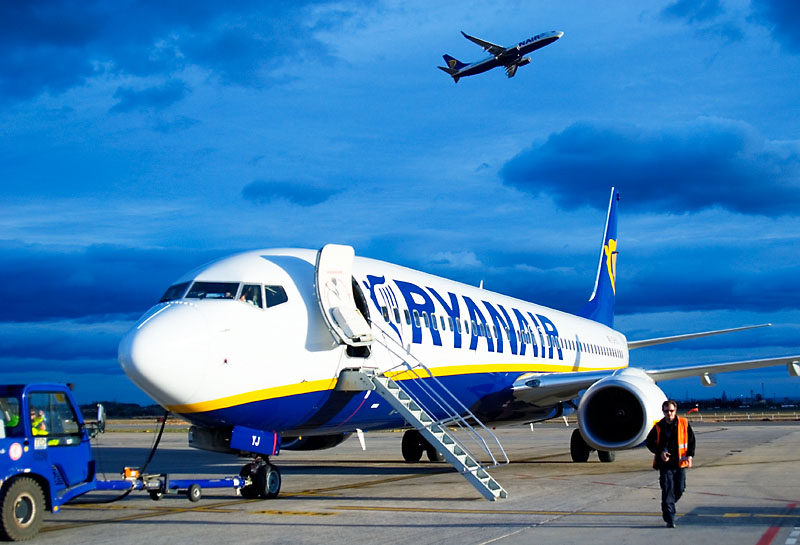
Representatives from the German United Services Union (Ver.di) who represent directly employed Ryanair cabin crew in the country will today meet with Ryanair management at the airline’s head office in Dublin. The discussions will be the first known negotiations between a cabin crew union and airline management to form a collective bargaining agreement on workers rights and pay.
In the last few months, Ryanair has managed to reach union recognition agreements in three major markets – the United Kingdom, Italy and Germany. Negotiations in other countries have proved less successful with unions in Portugal, Spain and Belgium holding a 48-hour strike in July (and subsequently joined by Italian workers).
Ryanair says the union recognition agreements cover over 66% of its directly employed cabin crew and hopes deals can be won with unions in other countries soon. But there’s a big difference between officially recognising a union and negotiating a collective bargaining agreement.
We suspected that unions such as the UK’s Unite union and Germany’s Ver.di would already have engaged Ryanair management in some form of negotiation covering pay, conditions and workers rights over the last couple of months. Clearly, these are sensitive discussions and we weren’t expecting either side to show their hand or give the world a running commentary.
And that’s why a new statement from Ver.di is so interesting. The union is making three key demands:
- A “substantial” increase in pay
- Recognising German employment law
- Equal conditions for directly employed and agency cabin crew
“The income must finally become viable and predictable. Due to seasonal fluctuations and a lack of flight hours guarantee some full-time employees receive only around € 1,000 gross per month. That is completely unacceptable,” explains the union’s Christine Behle.
But could these demands be putting the unions at loggerheads with Ryanair? After all, the airline has already said its cabin crew earn a good wage – they even went to the effort of publishing “real” wage slips in an attempt to prove their point.
Another big stumbling block will be the demand to recognise local employment law. At present, Ryanair forces all its cabin crew to sign Irish employment contracts – a policy that they say is perfectly legal, reasonable and not one they have any plans to change.
Ver.di also says it will be using a list of demands drawn up by the International Transport Workers Federation (ITF) as part of their negotiation. Unfortunately, Ryanair has previously called these demands “pointless”.
On the face of it, the two sides couldn’t be further apart – but when Ryanair finally agreed to recognise trade unions last year, the airline’s chief executive Michael O’Leary admitted the move could create issues that would need to be worked around. Both sides will need to be willing to compromise if an agreement can be reached.
Last Friday, the Irish budget airline suffered its worst one day strike after pilots in five countries walk out in protest at pay and working conditions. According to Reuters, around 55,000 passengers were disrupted because of the industrial action.
Mateusz Maszczynski honed his skills as an international flight attendant at the most prominent airline in the Middle East and has been flying ever since... most recently for a well known European airline. Matt is passionate about the aviation industry and has become an expert in passenger experience and human-centric stories. Always keeping an ear close to the ground, Matt's industry insights, analysis and news coverage is frequently relied upon by some of the biggest names in journalism.







